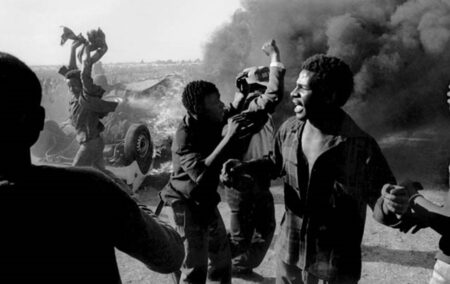Speaking in Parliament earlier this month, Cyril Ramaphosa said that ‘we are in rebuilding mode and correcting the mistakes of the past’. The government had learnt its lessons and South Africa was on a good trajectory. President Ramaphosa was clearly also encouraged by pledges made at last week’s investment conference.
But ‘mistakes corrected’ and ‘lessons learnt’? Hardly had he spoken in Parliament than Raul de Luzenberger, chargé d’affaires of the European Union (EU) in Pretoria, identified a series of South African ‘challenges’ facing European companies. They included the ‘particularly problematic’ BEE ownership target, uncertainty over public procurement, costly localisation requirements, and the ‘new and significant risk’ arising from this year’s employment equity legislation.
‘For most EU investors,’ said Mr de Luzenberger, ‘the overlapping and cumulative requirements of these multiple and changing policy frameworks make investment or expansion decisions particularly complex and, in some cases, prohibitive.’
The African National Congress (ANC) and its communist and trade union allies show less willingness to learn from their mistakes than did the National Party (NP). Barely two decades after they came to power in 1948, the ‘Nats’, as they were often called, began making pragmatic adjustments to their own apartheid policy.
Limited adjustments to segregated sport were made by John Vorster in 1967, the year after Hendrik Verwoerd was assassinated. Six years later Prime Minister Vorster lifted a ban on strikes by black African workers. His initial response to the revival of black unions was to ban their leaders, but in 1979 PW Botha’s government granted black African unions the same rights as had long been enjoyed by white, coloured, and Asian/Indian unions. By then the retreat from job reservation laws, formally signalled by Mr Vorster in 1973, was gathering momentum.
Segregationist measures
Tax incentives were introduced to encourage the training of black workers. Also in the early 1970s, the Vorster government began to narrow the 17 to 1 per capita state expenditure gap between black African and white schoolchildren. Legislation in 1959 imposed apartheid on universities. But racial quotas and other segregationist measures in higher education were formally lifted in 1988, having earlier been allowed to erode.
Denial of home-ownership rights to black Africans had been a key component of the apartheid system since before the NP came to power. But the Vorster government began to retreat from this policy in 1975, and by 1986 full home-ownership rights had been conceded in urban areas. By that stage the prohibitions on marriage and sex across the colour line had been lifted.
One of the cruellest things the NP did was to extend the pass laws to women in the 1950s. In 1986 Mr Botha’s government repealed these laws in their entirety. The year before that he had announced that black African homelands would no longer be cajoled into taking ‘independence’ from the rest of South Africa. South African citizenship would also be restored to black Africans from whom it had been removed when four of the ten homelands took independence. By this time, the Botha government was grappling with the fundamental question of how the white minority could ‘share power’ with the black majority over national issues.
When FW de Klerk released Nelson Mandela and launched constitutional negotiations in 1990 he was implementing the biggest policy reversal of all: negotiating with the very organisations his government had banned 30 or 40 years before. His acts of political liberalisation were the culmination of a process of economic liberalisation that had started two decades earlier.
Grass-roots pressure
Economic liberalisation was largely a response to grass-roots pressure and action. This came from people who voted with their feet against the pass laws by moving to the cities despite the risk of arrest. It also came from workers who joined unions and began to shift the balance of power on the factory floor. Job reservation laws were lifted because they created an artificial labour shortage. If blacks were to be allowed to do skilled jobs, more money had to be spent on their education. A stable labour force had to have rights of urban residence, including home-ownership rights, and citizenship. And so on.
This process of liberalisation was neither enthusiastic nor straightforward. It was accompanied by tighter and tighter security laws designed to quell resistance. People were done to death in detention. Pass arrests and forced removals were ruthlessly implemented in efforts to minimize the number of blacks in the supposedly ‘white’ parts of the country.
But in the end the NP bowed to reality, recognising that all the apartheid laws it had piled on to the Statute Book were not only ‘hurtful’ but also incompatible with a modern industrialising economy. South Africa, as Mr Botha said, had to ‘adapt or die’. Whites could not survive by oppressing other races.
The NP’s pragmatic retreat from apartheid began within 25 years of the 1948 election. It took another 20 years before the NP had completed that process. The ANC has been in power for 25 years and shows no sign of learning from its ‘mistakes’, let alone correcting them. Indeed, whereas the NP steadily abandoned its racial policies, the ANC is busy with the intensification of its own racial agenda.
More and more power
Having undermined black African property rights, the NP eventually recognised that they needed to be restored. The ANC is busy with legislation that will undermine the property rights of all. The NP built up the powers of the state and then began to reduce them. The ANC seeks more and more power for the state, regardless of both corruption and incompetence.
Whatever else they may have done, all three of the last NP leaders showed themselves capable of introducing necessary reforms. Mr Ramaphosa does not begin to measure up.
[Picture: Paul Weinberg, https://commons.wikimedia.org/w/index.php?curid=26754890]
If you like what you have just read, support the Daily Friend

